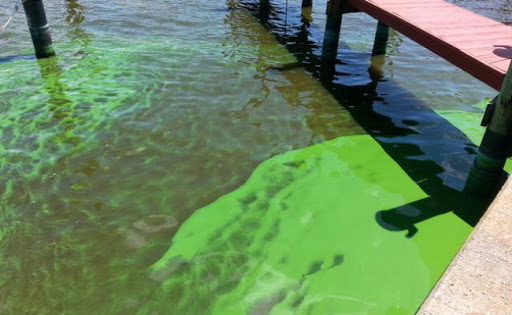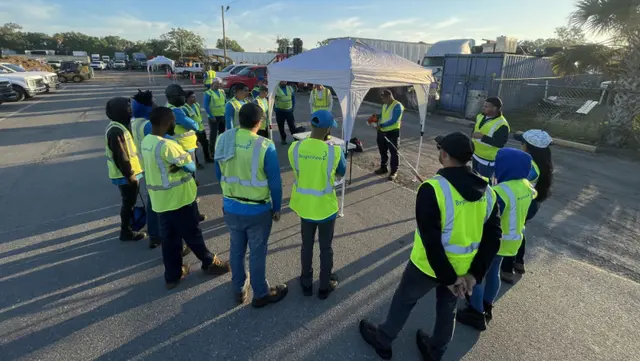
The Facts About Fertilizer Bans in Florida
Here's what you need to know to remain in compliance and keep your landscape healthy.
Fertilizer is excellent for improving the quality of your landscape. Yet, when it ends up in the water supply, it’s not so great for water quality. As a result, many Florida counties have implemented fertilizer bans, which prohibit the application of any fertilizers containing nitrogen or phosphorus between June 1 and September 30, or when the National Weather Service predicts heavy rain to occur within 24 hours. Here, we’ll breakdown what you need to know to remain in compliance and keep your landscape healthy.
The Basics of Fertilizer Bans

Fertilizer ordinances began as a way to lessen runoff and improve water quality during Florida’s rainy season. In some counties, properties within close proximity to a waterbody are already prohibited from using fertilizer at any time of the year. For properties farther inland, however, there is still the risk of runoff washing into watersheds, where it will funnel into rivers, lakes, or oceans. The concern is that summertime’s heavy afternoon rains may exacerbate the effect.
The restrictions aren’t totally black and white, though. Many ordinances include two notable exemptions, one of which is golf courses; the other is property owners who can demonstrate a phosphorous deficiency in their landscape.
Why Soil Testing is Important
So how do you prove a phosphorous deficiency? With soil testing, of course! Routine soil testing delivers a wealth of knowledge about the health of your soil. In addition to providing a window into available nutrients, you’ll also learn about the pH of your soil and its organic matter content (which is important for maintaining appropriate soil moisture and drainage).
If your landscape partner suspects a phosphorous deficiency, soil testing will confirm it and produce the documentation required for local authorities. While regular soil testing is important for every landscape, if your property falls within an area that’s subject to a fertilizer ban it’s all the more crucial to ensure you catch a deficiency early on.
How We Can Keep Waterways Clean
There are many small things we can all do that will go a long way towards keeping our waterways clean; one of which is paying attention to what flows into your storm drains. At BrightView, we take care to remove grass clippings and leaves so they don’t become runoff. We also offer options for clients interested in recycling their clippings as mulch or compost for their lawn. And most importantly, we’re careful to apply only the recommended amount of fertilizer, and always avoid impervious surfaces or water bodies. These are all tips you can also apply at home to maximize your impact.
One of the best ways to reduce or eliminate the need for fertilizer is to stick with native vegetation in your landscape. These plants are already well suited to grow in the Florida soil, which not only helps save the environment, but can also save you money in reduced fertilizer costs.
To explore your options—for native plants, or other environmentally responsible landscape strategies—enlist the help of your landscape partner. We’re proud to offer a number of sustainable practices that maintain the health of your landscape and our environment. Request a free quote or give our team a call at 844.235.7778.



